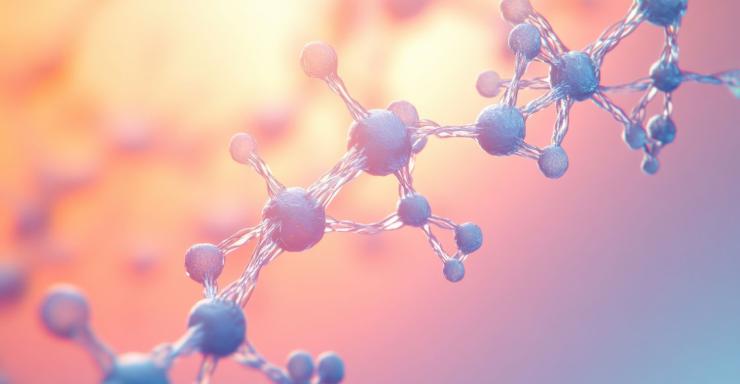Menopause is a complex period of hormonal changes that affects every woman. At the same time, this process remains "imperceptible" and insufficiently updated in society. Often, women receive information when the menopausal transition has already begun, and the woman has encountered previously unknown symptoms that cause anxiety about her health. What do Latvian women of reproductive age know about menopause?

For women of reproductive age, menopause is an ambiguous concept, despite its importance and integral part in every woman’s life. Studies¹ conducted in the UK and Canada on women’s knowledge of menopause show that younger women tend to have a more negative perception of menopause and the changes associated with it², with one of the main reasons being a lack of awareness. Therefore, the most important facts about menopause should be accessible and understandable, as perimenopausal women are a significant part of Latvian society, and after the age of 42, the proportion of women exceeds that of men.
The participants in this survey are aged 18 to 49 (according to the World Health Organisation, the reproductive age is from 15 to 49 years), and the average age is 39 years. Most of them are working women (77%) with higher education (72%).
The study allows us to understand how well women are prepared for this stage of life and what life factors might influence the severity of menopausal symptoms in the future.
Based on the results of the study, it will be possible to identify current trends and problems, as well as propose additional research, develop information materials and update public education about menopause, which would contribute to the long-term improvement of the health and quality of life of the population of Latvia.
The survey reveals that the majority, or 94%, of women of reproductive age understand the term "menopause", and 93% agree that this process affects every woman. Approximately 65% agree that the cessation of menstruation is part of the menopause process, while 76% recognise changes in sex hormone levels as one of the most important signs of menopause. 92% of respondents agree that menopause symptoms can appear before the age of 50.
Hot flashes, sleep disturbances, irritability?
What do women think – what symptoms can women experience during menopause? 93% of women surveyed agree that hot flashes are a symptom of menopause, and 80% believe that vaginal dryness is associated with menopause, as well as 60% agree that decreased libido is a sign of menopause. The women surveyed agree that during the menopausal transition, women can experience weight gain (66%), mood swings (82%), sleep disturbances (69%) and memory loss (72%). In addition, 55% agree that menopausal symptoms worsen quality of life, and 71% believe that menopause is associated with a deterioration in general health. 50% believe that menopause can increase the risk of cardiovascular disease (e.g. high blood pressure, heart attack, stroke).
Such changes are indeed possible. Why? In the context of menopause, the hormone estrogen should be mentioned first, as its decline causes changes in the menstrual cycle, which can also be called the first sign of the transition period. As estrogen decreases, the internal structure of the genitals changes, the skin of the external genitals and the vaginal mucosa become thinner and less elastic, which can cause symptoms such as vaginal dryness, itching and pain during intercourse, which also affect sexual desire or libido. In turn, changes in the urinary system increase the risk of urinary tract infections and urinary incontinence. The most well-known symptoms of menopause are hot flashes and sweating - these symptoms can be of varying severity.
Insomnia and waking up at night may be associated with them, and the quality of sleep may also deteriorate during menopause, affecting work capacity, mood and concentration.
Hormonal changes and severe symptoms can also affect psychological and cognitive well-being, and women are at increased risk of experiencing anxiety, stress, irritability, and depression during this period. Overall, the above symptoms affect not only a woman's health but also her quality of life.
Hormonal changes associated with menopause can directly and indirectly affect cardiovascular and skeletal diseases, as well as increase the risk of obesity, insulin resistance, and diabetes. The risks of diseases should be assessed individually, as they can be related to both age and other factors, such as smoking, eating habits, and physical activity.
Can it be influenced even before menopause?
Although menopause refers to a specific stage of life, the lifestyle before it can greatly influence the course of menopause.
Therefore, more education and support is needed to promote healthier lifestyles and better preparation for the menopausal transition, to increase awareness of this process in the future, and to maintain overall health. This is essential for maintaining a high quality of life during perimenopause, to make it easier to get through this stage of life and to feel as good as possible afterwards.
For reference
The final research work involved an online survey of 557 Latvian respondents aged 16 to 64. 431 women of reproductive age from Latvia were selected for the analysis to determine their knowledge of menopause symptoms and lifestyle habits.
References
1 This is a conclusion from two similar studies, both of which aimed to assess young women's knowledge of menopause to develop educational programs and prevent menopause stigma in society. Read here and here.
2 Munn, C., Vaughan, L., Talaulikar, V., Davies, M. C., & Harper, J. C. (2022). Menopause knowledge and education in women under 40: Results from an online survey. Women's Health, 18, 17455057221139660. Read more Patel, V., Ross, S. & Sydora, B. C. Assessing young adults' menopause knowledge to increase understanding of symptoms and help improve quality of life for women going through menopause; a student survey. BMC Women's Health 23, 2023, p. 493. Read more


